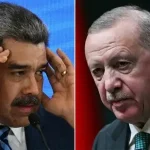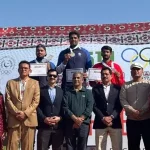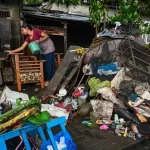Keeping in view the current situation in the world and the region, Pakistan will have to swiftly “change its direction”, said Foreign Minister Khawaja Asif on Thursday after the conclusion of the Pakistani envoys’ conference.
Envoys to some major countries and multilateral institutions participated in the three-day conference which deliberated on changes unfolding in the geopolitical environment.
“We are undergoing a seismic shift,” Asif said during a press conference, referring to the “altering” regional and international situation.
He added that the geopolitical changes taking place in the world were unprecedented. “Perhaps, such changes were not even witnessed after the Second World War. New allignments have been made, strategic policies are dictating nations’ interests.”
“We [Pakistan] have to review these situations pragmatically and take the right direction. We have to quickly adjust our direction,” the foreign minister said.
The US policy on South Asia and Afghanistan was discussed during the final session of the envoys conference and Pakistan’s ambassador to the United States, Aizaz Ahmad Chaudhry, provided a briefing on the situation following US President Donald Trump’s statements.
“After the briefing, we have come to understand the different dimensions of the problem.”
The minister said that there is a 50 to 60-year-long history behind the Washington policy and the regional situation “which is gradually unfolding”.
“In my personal view, [in the course of this history], we have only incurred losses and haven’t gained much,” he said.
“We don’t have a lot of time — the developing regional situations do not allow us to take our time,” the minister reiterated, stressing on the urgency of the matter.
Asif said that in the coming days “there will be a policy shift in the country.” The new policy will be formulated with the army and the country’s institutions and will keep Pakistan’s interests in view.
He added that recommendations in this regard will be made to the National Assembly based on the advice given by the envoys during the meetings.
During the envoys conference, Pakistan’s war against terror was also discussed, he said, adding “There is a difference ─ a distance ─ between the world’s perception and Pakistan’s perception [of the war].”
A day earlier, the United States had reminded Pakistan that it “must change its approach” to terrorism.
The US State Department had also reminded Pakistan of the need to fight all militant groups operating in the South Asian region.
Washington also praised the BRICS forum, which, in its recently held meeting of the alliance’s leaders, termed militant groups allegedly based in Pakistan a regional security concern and called for their patrons to be held to account.
The groups mentioned in the BRICS statement included the Afghan Taliban, militant Islamic State group, Al Qaeda and its affiliates, the Haqqani network, Lashkar-e-Taiba, Jaish-e-Mohammad, Tehreek-i-Taliban Pakistan (TTP) and Hizbut Tahrir.
Some of them are based in Afghanistan and use their bases for launching attacks into Pakistan. On Dec 16, 2014, one of them — TTP — raided a school in Peshawar and killed 141 people, including 132 children.
“The groups named are already banned in Pakistan,” Asif said during the presser.
The minister said that Pakistan’s dependency on US has been greatly reduced. However, he said, Pakistan’s relationship with the US has not ended and future communications will be made keeping in view Pakistan’s interests.
“Pakistan will cooperate with countries who recognise its sacrifices,” the minister said.






Well said Sir.
I have read your response to the USA in several sources.
You use the right langusge blunt but pragmatic and speak with backbone and self respect.
1. US can not scapegoat Pakistan
2. The world MUST recognise our sacrifices people, infrastructure and economy.
3. We are friends but not at the sacrifice of territorial integrity.
4. We will continue to fight Terror but not be anyone’s whipping boy.
5. There is a regional geopolitical shift and Pakistan is at the centre of this. Hiw can USA stay silent on Burma abd Kashmir and perceive itself as fair, goid and a force to trust.
Asia matters to Asians, China, Pakistan, Russia, Turkey and the Central Asian states risk the most and must sit together united. All must msintain very good relationships with Iran and ME.
India is a disruptor and not a force for unity, integration and peace in West and Central Asia.
America sadly wants all the cake and has imperial overtures.
Europe is on the fence with which side prevails.
There needs to be a Project Of A New Central Asia – PNCA led by China, Russia, Pakistan, Turkey, Central Asian States, Iran think tanks comung together as obe.
Right now Afghanistan’s corrupt rulers are scurrying for survival and in time Affhanistan needs to be central to this.
I hope someone important reads this!
Do it and grab your destiny Central Asia and embrace it.
India is a disruptor and represents South Asia, she will only reason once we hace a stable, united and integrated Central Asia.
America has no place here to be honest other than a trading partner.
Pakistan too has to step up and clean up its malignant politics and not give tje trouble makers a chance to point fingets.